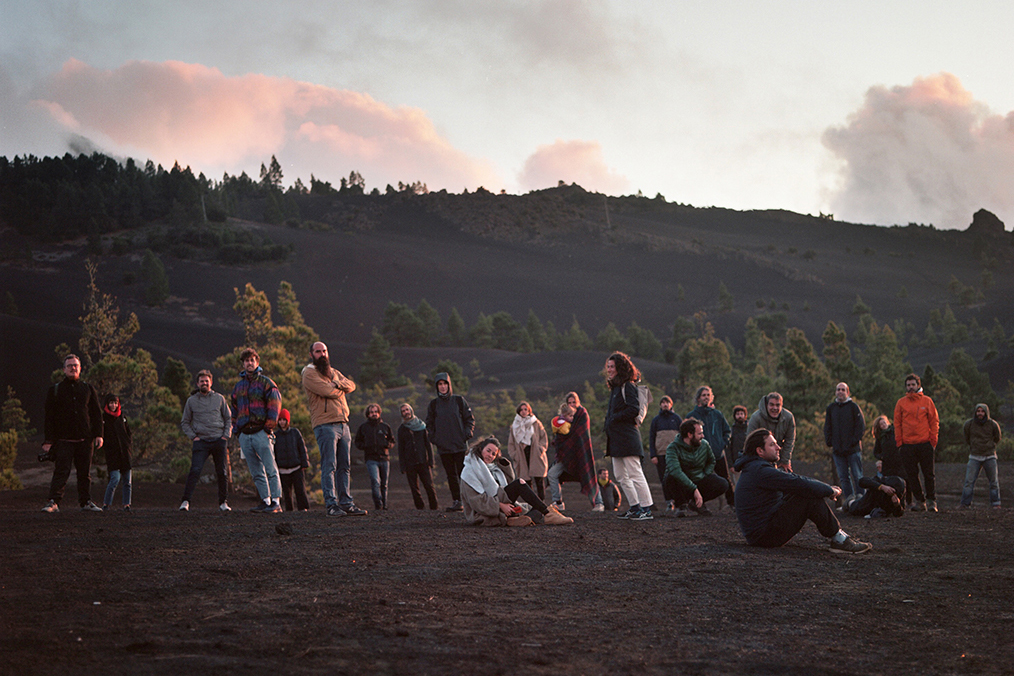
Zuloark Collective is a distributed office specializing in architecture, urbanism and culture, founded in 2001 in Madrid, with branches in Madrid, Berlin, Coruña, Bologna, Amsterdam, Athens, and La Palma.
Thanks to its diversity of members, Zuloark engages in a wide range of activities, including architectural design, tactical urbanism and participation, cultural heritage projects, festival design, and construction workshops. In 2007, Zuloark co-founded the Zoohaus cooperative, launching the international practical research project “Collective Intelligences.”
The collective has received several international awards, such as the Golden Nica or the Arquia Próxima, and has been recognized at the XII Spanish Biennial of Architecture and Urbanism and the 2012 Ibero-American Biennial of Architecture and Urbanism. In 2014, the collective received the UN Best Practice Award at the Dubai International Award by UN-Habitat for its contribution to the Campo de la Cebada project.
Zuloark’s work has been showcased in various cultural institutions worldwide, including the MoMA in New York, the Akademie Der Künste in Berlin, the Lisbon Architecture Triennale, and Matadero Madrid.
Since its inception, Zuloark has been actively involved in academic contexts, teaching at institutions such as the School of Architecture of the Polytechnic University of Madrid (Spain), the Berlin University of the Arts (Germany), the Monterrey Institute of Technology and Higher Education (Mexico), and TAI University School of Arts (Madrid), among others.
Since 2001, Zuloark has worked under a collaborative model based on care, shared responsibility, and collective authorship. As we often say, Zuloark’s most important project is Zuloark itself. Our structure is organized through a system of “fluid hierarchies” with rotating management roles, complemented by a broad network of international collaborators.
The collective has always been active in public debates on contemporary social and political demands. Addressing the global climate crisis and ecological collapse is currently one of our top priorities.
Our philosophy is founded on four core pillars:
Second Lives: A recycling policy where the lifecycle of materials is integrated into the initial stages of the design process. This circular economy approach involves reusing components and materials from one project to another while engaging local authorities in the process. The Situated City: Inspired by Donna Haraway’s concept, we take on the complex but essential task of mediation and participation in each new project, involving as many local participants as possible. Zuloark often acts as a facilitator between private organizations, individuals, public entities, academic institutions, and civil society. The Zone of Proximal Development: Drawing from Lev Vygotsky’s idea, we established Zuloark in 2001 as a place where “everyone can learn to do something with the help of someone else.” In every collaborative and educational process, we invite participants to “learn by doing,” focusing on their skills and interests while sharing knowledge. Collective Intelligences: This concept, which lends its name to one of our research projects, is also a vision. We learn from emerging ways of creating cities to drive innovation in architecture and urbanism.
Zuloark members across the years
Currently
Aurora Adalid Núñez
Alfredo Borghi
Andrea González Garrán
Ana Salom
Carlota Neris
Jacobo Cayetano García Fouz
Juan Chacón
Luis de Prada
Luis Galán García
Manuel Domínguez
Manuel Pascual García
Raquel Gómez
2021-2024
Natasa Lekkou
Stela Vakalopoulou
Alberto Rey
Vaso Aidonidou
Francesca Caleca
2011-2020
David Berkvens
Natalia Hosie
Clara Peter
Julie Battisolo
Lea Schwab
Selina Schlez
Patricia Munté
Esteban Fuertes Gonzalez
Miguel Martinez
Anna Buono
Mariana Areia
Ana Almazán
2001 – 2010
Ana Herruzo Pierce
Olga de Dios
María Aracil
Mariana Tobón
Lucía Smith
Helena Gutiérrez
Celia García
Ramón Francos
Javier Castillo
Aritz González Prieto
